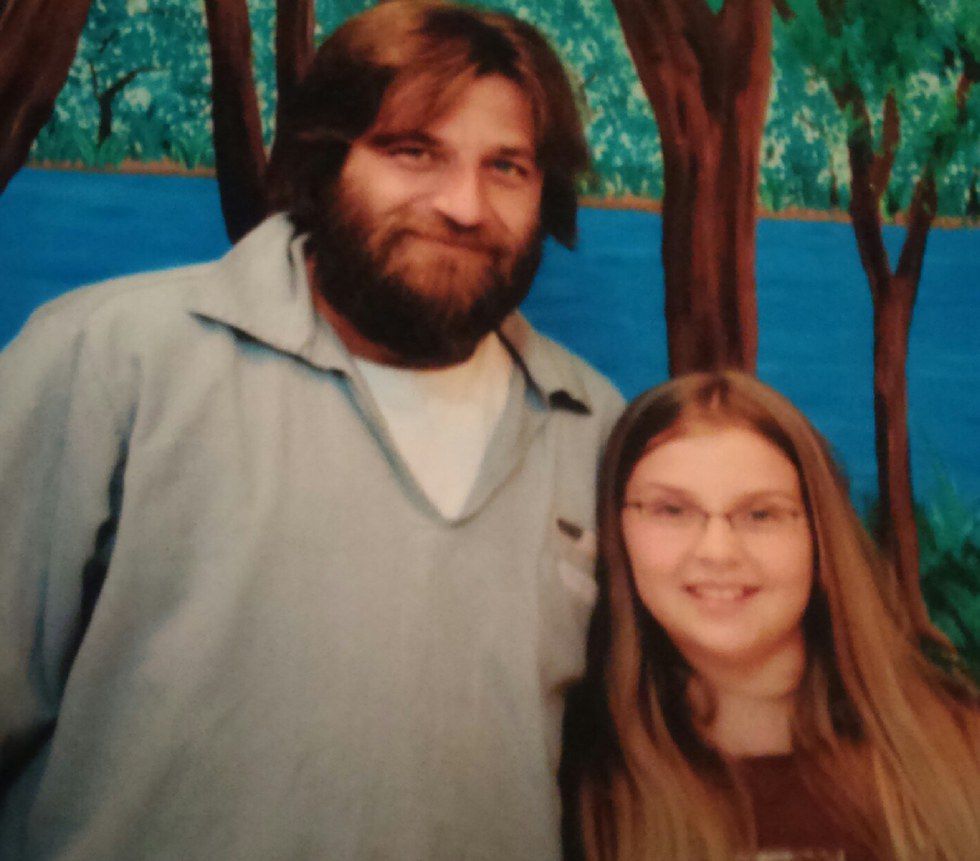I have always known my father to be in and out of trouble. Well, more in than out, spending a vast amount of my childhood in prison. As a young child, I was extremely embarrassed by my father; who he was, where he was, what he had done. When asked about him, I lied, claiming that he still roofed and lived down the road from my grandparents. But in all reality, he could be located at one of the several correctional facilities in which he resided over the years, working to earn no more than $3 a day.
When my dad was home, I would visit him every other weekend. When he was not home, I would stay with my grandparents. We would go visit him once a month. Again, if anything was brought up relative to my father, I would lie so everyone would believe I was spending the weekend camping with him, rather than visiting him in prison. I absolutely hated going to visits. Being a child and not being allowed to see your own father without filling out paperwork, showing proof of identification, being monitored by guards and having specific and limited-timed visits, is devastating for the child. I can remember hugging my dad, eyeing the guard, waiting for him to give the look that our hug needed to conclude. I always feared that I would get him in trouble for the extended length of the hug, but my fearless dad, better yet, careless, would hold me even after the guard had told him to release his child. After our visits, dad would take his time walking back to his cell, so he could wave as we drove away. Watching your parent as he is locked inside of a barb wire fence is an image that will never escape your mind. As much as I dreaded visiting my father in jail, I missed him. Phone calls and written letters do not satisfy a child's desire for their parent.

The hardest timespan for a child with an incarcerated parent is holidays. It feels as if these times single out those who do not have the privilege of spending Mother's/Father's Day with their parent. Most students make crafts for their moms and dads for these special days. Those with an incarcerated parent must send objects to their parent through the mail, most of which will be rejected after being inspected and will be returned.
Previously, I thought I would be judged based on my father's actions. Today, I can assure you that there will be those people who will base their view of me off of my father's wrongdoings. The difference between me now and myself as a child is that I would have let these biased impressions affect me. Today, I am not ashamed to inform people that my dad has been to prison for his drug addiction. What I wish people would understand, though, is that his actions do not define me. I am not my father. I am not less of a person because of him. If anything, my father's incarceration has made me into the strong, independent person I am today. This is why I am no longer ashamed.
XO and best wishes,
Ashley Rose Corbin



















